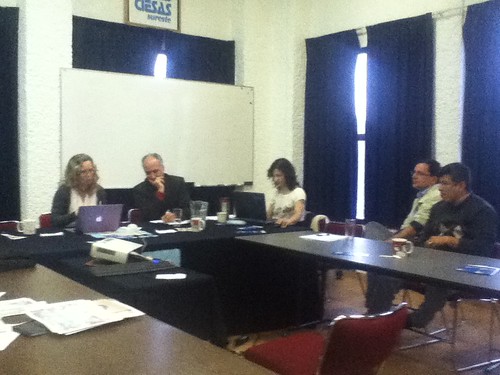This has been an extremely productive year for me. In 2013 alone, I have participated, so far, in 2 international conferences (the biennial meeting of the International Association for the Study of the Commons, in Kitafuji, Japan, and the 2013 meeting of the Latin American Studies Association in Washington DC, USA), and 2 international workshops (“The Political Dimensions of Water Resources” in San Cristobal de las Casas, Chiapas in Mexico, and “The Ways and Means of Transnational Private Regulation” in Dublin, Ireland). This tally is not even counting the local conferences I’ve presented at (IGLOM 2013, the biennial Meeting of Researchers on Local Governments in Mexico that took place in Guadalajara, the 2013 International Political Science conference in Guanajuato).
What I have found is that I like small workshops much better than I do large scale conferences. Of course, I love attending LASA, ISA, APSA, AAG. These are conferences where I network with a vast community of scholars in different fields with whom I have established (or want to build the foundation for) collaborative networks. But small-scale workshops allow me to spend full days immersed in one topic, instead of shuttling from room to room chasing scholars I want to hear.
My experience at LASA 2013 in Washington DC this summer (presenting, not actually attending) was somewhat disappointing. I did receive some interesting feedback on my paper, but it was a huge room and there were like 15 attendees (there were 3 presenters in my panel). Frankly, for the expense, I really didn’t feel I got much out of what I invested (full disclosure: LASA gave me a travel grant, but I paid additional expenses).
Contrast that to the workshops I participated in, where I could focus entirely for two or three days in the research we were discussing (in one case, the politics of water, and in the other, transnational private regulation). In both cases I felt that I actually was able to immerse myself in the topic. This feeling may also be the result of the type of conferences I attend. LASA is massive, and too heterogeneous and diverse. Although IASC wasn’t that big of a conference compared to LASA, it was a titch too diverse (I study water as a commons, whereas we discussed every type of commons, including forests, climate, etc).
I’ve had the same type of experience at International Studies Association, Canadian Association of Geographers, and a number of other conferences I’ve attended. I still plan to do several of those, but I’m going to privilege participating in smaller-scale workshops when I want to get more out of an academic meeting of the minds.



One Response
Stay in touch with the conversation, subscribe to the RSS feed for comments on this post.
Continuing the Discussion